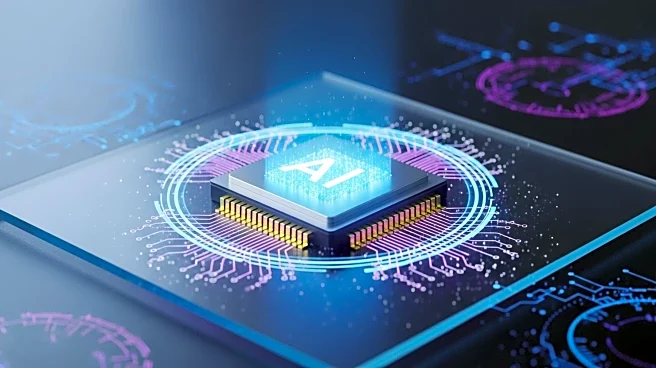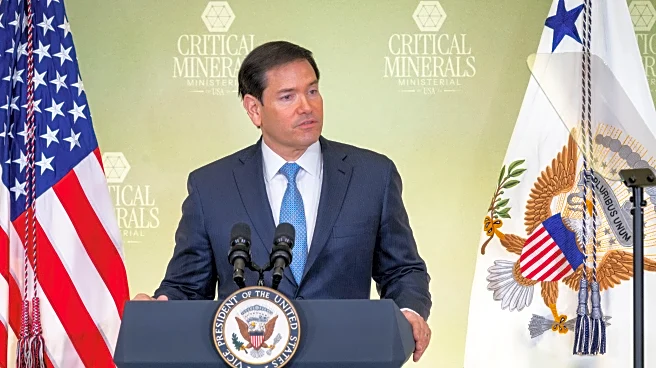What's Happening?
Dario Amodei, CEO of Anthropic, has shared his perspective on the development of artificial general intelligence (AGI), which he prefers to call 'powerful AI.' In a recent essay, Amodei outlined his vision for this emerging form of AI, emphasizing its capabilities beyond traditional definitions. He describes 'powerful AI' as smarter than a Nobel Prize winner, capable of multimodal interaction, and able to operate independently without physical embodiment. Amodei criticizes the portrayal of AGI as a prophetic mission by some AI leaders, arguing that it is dangerous to view companies as unilateral shapers of the future. He predicts that this form of AI could be realized by 2026, likening it to 'a country of geniuses in a datacenter.' Other major AI companies like OpenAI, Google, and Meta are also pursuing similar goals, though definitions vary.
Why It's Important?
The redefinition of AGI as 'powerful AI' by Amodei highlights the evolving discourse around AI capabilities and their potential impact on society. This shift in terminology aims to distance the concept from science fiction connotations and focus on practical applications. The development of such advanced AI systems could revolutionize industries by automating complex tasks, enhancing productivity, and driving innovation. However, it also raises ethical and societal concerns about autonomy, control, and the role of AI in decision-making processes. As companies race to achieve these technological milestones, the implications for employment, privacy, and security become increasingly significant.
What's Next?
As the race to develop 'powerful AI' continues, stakeholders in technology, government, and civil society will likely engage in discussions about regulation, ethical guidelines, and the integration of AI into various sectors. Companies may face pressure to demonstrate transparency and accountability in their AI development processes. The anticipated arrival of such AI systems by 2026 could prompt policymakers to consider new frameworks for managing AI's impact on the economy and society. Collaboration among AI developers, regulators, and the public will be crucial in navigating the challenges and opportunities presented by these advancements.
Beyond the Headlines
The discourse around 'powerful AI' reflects broader cultural and philosophical questions about the role of technology in shaping human experiences and societal structures. As AI systems become more autonomous and capable, debates about human agency, the nature of intelligence, and the ethical boundaries of AI will intensify. This development could lead to long-term shifts in how society perceives intelligence and the relationship between humans and machines. The potential for AI to act independently and collaboratively raises questions about trust, accountability, and the future of human-AI interaction.











